A campaign launched by the Iraqi government against social media content creators in the country under the pretext of "violating public decency and morals" has raised concerns for freedom of expression in the country, especially following the arrest of a number of social media celebrities, putting them on trial, and issuing quick prison sentences against them.
On Wednesday, February 8, 2023, the Karkh Misdemeanor Court issued prison sentences against content creator Hassan Sajma and content creator Ghufran Mahdi Sawadi, known as "Umm Fahd", on charges of "bad content" by "publishing several films and videos containing obscene and indecent statements and displaying them to the public on social networking sites".
Sajma was sentenced to two years in prison, and Umm Fahd to six months' imprisonment based on the provisions of Article 403 of the Penal Code No. 111 of 1969, as amended, which stipulates that "Any person who produces, imports, publishes, possesses, obtains or translates a book, printed or other written material, drawing, picture, film, symbol or other thing that violates the public integrity or decency with intent to exploit or distribute such material is punishable by a period of detention not exceeding 2 years plus a fine not exceeding 200 dinars or by one of those penalties. The same penalty applies to any person who advertises such material or displays it in public or sells, hires or offers it for sale or hire even though it is not in public or to any person who distributes or submits it for distribution by any means. If the offense is committed with intent to deprave and corrupt morals, it is considered to be an aggravating circumstances."
At the same time, the head of Iraq's Supreme Judicial Council, Faiq Zidan, directed "general deterrence" by taking strict legal measures against anyone who publishes content that "offends public decency and constitutes immoral practices."
The Iraqi government is waging a campaign against the creators of "degrading content" on social media, and urges its citizens to report them, amid human rights concerns following the issuance of quick prison sentences against "Sajma" and "Umm Fahd"
A circular addressed to Iraqi courts last Wednesday stated: "Through media monitoring, it has been observed that social networking sites are used to publish content that offends public decency and constitutes immoral practices, in addition to deliberate abuse and in violation of the law against citizens and state institutions with various titles and names. Therefore, strict legal measures must be taken against those who commit these crimes in order to ensure general deterrence."
What's the story behind the campaign?
On January 16, 2023, the Iraqi Ministry of Interior announced in a statement that "a committee will be formed to follow up on the content being posted on social media, address the depraved ones, and bring their makers to justice," adding that "the judiciary supported the proposals of the security services on the issue of content in social media." It stressed, "The committee began its work and was able to reach and arrest the creators of depraved content."
A few days later, the ministry launched the digital platform "Ballegh" (meaning ‘Report’) to receive reports against the creators of "degrading" content to take the necessary action against them and "improve public decency," as it put it.
In a number of videos, the ministry appealed to citizens through public figures, including artists, academics, media professionals and legal professionals, to report any "degrading or offensive content" they encounter online, warning of its danger, its impact on society and the legal consequences that may result from its poster or promoters.
تواصل الرفض للمحتوى الهابط ودعوات لتصحيح المسار في مواقع التواصل الاجتماعي pic.twitter.com/kDdlBi37P7
— سعد معن - Saad Maan (@saadmaanoficial) February 3, 2023
Meanwhile, there were reports of the arrest of a number of content creators in preparation for their trial on the same charge, including: Salousa, Assal Hussam and Sayed Ali. In addition to the recently sentenced Umm Fahd and Hassan Sajma. A number of social media celebrities in the country, led by blogger Enas al-Khalidi, announced their "retirement" or changing their content, apparently for fear of the campaign of arrests.
In an interview with Al Rasheed Satellite Channel published last Wednesday, the head of Iraq’s Security Media Cell and Director of Relations and Media Department at the Iraqi Interior Ministry, Major General Saad Maan, said that every person who interacts with "depraved content" by liking or commenting is subject to arrest and trial as an "accomplice to crime", not only the creator or publisher of the content, stressing that there is a "waiting list" for content creators who will be targeted for accountability, including those outside Iraq.
اللواء سعد معن : مشترك بالجريمة كل من يعطي لايك او يعلق على منشورات اصحاب المحتوى الهابط!! pic.twitter.com/DKDxP0LQLB
— قناة الرشيد الفضائية (@alrasheedmedia) February 8, 2023
General Maan urged creators of "debased" content to show "good faith" and "respect for Iraqi society" by removing "immoral" clips and posts to avoid accountability.
After arresting some content creators in #Iraq and issuing quick prison sentences against two, the Interior Ministry warns those who interact with "depraved content" by liking or commenting are subject to arrest and prosecution as an "accomplice to crime"
An excuse to suppress dissenting voices?
On social media, a number of Iraqis expressed fears that the campaign would serve as a cloak and a pretext to "suppress all dissenting voices" opposed to the government, while commentators asked: "Who is holding the owners of debased political content accountable?"
Among these voices is that of Iraqi journalist and legal researcher Hussam al-Haj, who said, "I fear that the campaign to combat 'degrading content' will expand to restricting freedoms, ideas and ideologies and thus impose a specific pattern of ideas and opinions, and everything else will be treated as ‘degrading content'.. "We are moving steadily towards silencing voices to ensure as much as possible to fence (protect) the authority from any type of counter-opinion."
Activist Ali Sohaili warned those who “encourage the law on degrading content that there will come a day and you will regret supporting it”. Activist Sara wrote, "The arrest and imprisonment of content creators is just the beginning of muzzling voices. There are a thousand ways to get rid of degrading content aside from jailing its posters. You will regret your support and applause for these government actions that restrict the freedoms of individuals later. The day will come when we will fear to write a single letter against them... The price of one word will be prison”.
"If you let the state control your freedom of expression, this is the beginning of the end.. Never let the government tell you what to publish, because this can be easily politicized. We'll go back to the dark ages where we'll be imprisoned for our ideas”
A tweeter named Ayman urged "conscious youth" not to cooperate with the "Ballegh" platform or the committee made for this very purpose, warning that "if you let the state control your freedom of expression, this is the beginning of the end." He went on to add, “‘Degrading’ content is objective. Just block anything you don't like.. But never let the government tell you what to publish and what not to, because you all know how easily this can be politicized and how they can remove anyone who disagrees with them on any idea, and we will go back to the dark ages where you can be imprisoned merely for your ideas.”
Twitter users expressed their skepticism about the criteria that the campaign is based on. Activist Munther al-Ghrybawy tweeted: "[They announced this] without us knowing what are the criteria that define 'depraved content' so that we can all agree that it is indeed depraved once and for all... What about corruption, murder, political incitement, defamation and extremist speeches that are launched from media and religious platforms... What do we call them? A debased system. It is befitting of such low standards."
For his part, a member of the Iraqi High Commission for Human Rights (IHCHR), said, "The regime, which prosecutes those who publish degrading content under the pretext of its influence on public decency, while it pardons those who rob the poor and are the cause of poverty, leading citizens to resort to any way to earn money, whether by publishing degrading content, delinquency, or falling victim to drug trafficking or human trafficking, is a blind, temperamental and unjust system”.
"There are many other ways to get rid of degrading content. You'll regret your applause for these govt. actions that restrict individual freedoms. The day will come when we'll fear writing a single letter against them. The price of one word will be prison”
I approve but…
On the other hand, a number of Iraqis have shown support for the security crackdown on content creators, some unconditionally, and others stipulating the presence of more clarity on the accountability standards according to which the Iraqi judiciary deals with "offending" content.
In this regard, Jumana Mumtaz, one of the public figures who participated in the videos published by the Ministry of Interior to raise awareness on its campaign, said, "I support the Interior Ministry in its campaign to combat degrading content, and most of us are happy but! To prevent, limit, and issue warnings, not immediately begin handing out court rulings! Let the Ministry of Interior go and arrest the promoters of hate speech who are all over satellite channels, and those who incited the killing of people on social media, especially during the #OctoberDemonstrations,” referring to the major October Protest Movement, more commonly known in Iraq as the ‘Tishreen Movement’.
"A regime, that prosecutes those who publish degrading content under the pretext of its influence on public decency, while it pardons those who rob the poor and are the cause of poverty, leading citizens to resort to any way to earn money, whether by publishing degrading content, delinquency, or falling victim to drug trafficking or human trafficking, is a blind, temperamental and unjust system”.
Journalist Saja Albayati said: "I am with the Iraqi judiciary to hold degrading content accountable, but I ask it to define the laws that are legislated and applied to the Iraqi citizen before holding him accountable; What kind of behavior and public morals violate decency? How can we act? What article will the judiciary use to punish those who do? It cannot act according to its own whims and decisions."
Broadcaster Mohammed al-Kubaisi appealed to the Iraqi judiciary: "Complete the favor by fighting degrading content and holding the channels and presenters who host such content accountable, as well as those who ask trivial and silly questions for the sake of trending and views."
It is noteworthy that the Iraqi campaign follows in the footsteps of a campaign launched by the Egyptian government months ago against content creators on social media, specifically "TikTok girls" who are famous for posting dancing content via the application, but under the pretext of preserving "the values of the Egyptian family”. This crackdown campaign in Egypt had been subjected to widespread human rights criticism.
Raseef22 is a not for profit entity. Our focus is on quality journalism. Every contribution to the NasRaseef membership goes directly towards journalism production. We stand independent, not accepting corporate sponsorships, sponsored content or political funding.
Support our mission to keep Raseef22 available to all readers by clicking here!
Interested in writing with us? Check our pitch process here!
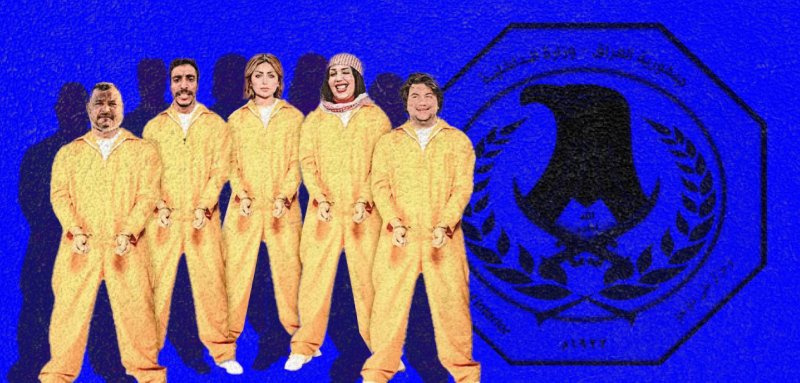
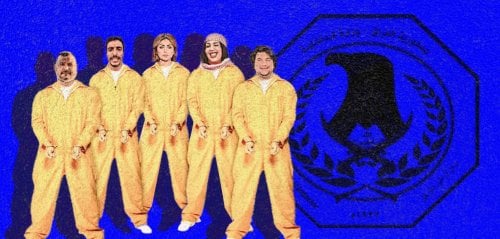
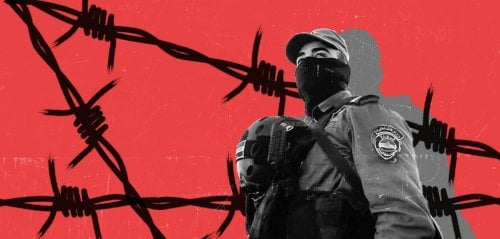

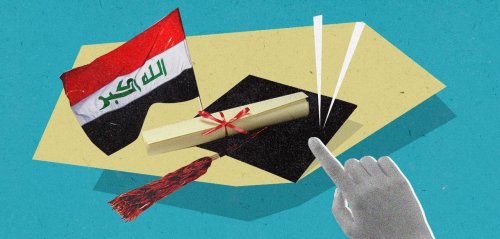
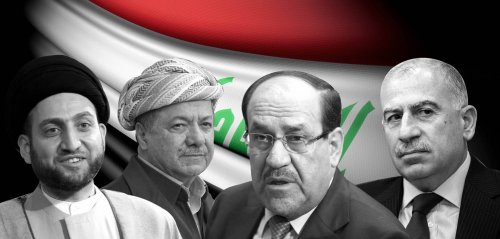






Join the Conversation
Hossam Sami -
29 minutes agoصعود "أحزاب اليمين" نتيجة طبيعية جداً لرفض البعض; وعددهم ليس بالقليل أبداً. لفكرة الإندماج بل...
Anonymous user -
1 day agoرائع و عظيم ..
جيسيكا ملو فالنتاين -
5 days agoزاوية الموضوع لطيفة وتستحق التفكير إلا أنك حجبت عن المرأة أدوارا مهمة تلعبها في العائلة والمجتمع...
Bosaina Sharba -
1 week agoحلو الAudio
شكرا لالكن
رومان حداد -
1 week agoالتحليل عميق، رغم بساطته، شفاف كروح وممتلء كعقل، سأشاهد الفيلم ولكن ما أخشاه أن يكون التحليل أعمق...
Anonymous user -
2 weeks agoهذا ليس طبيعيا، وهو ينشئ في الحالات القصوى من اضطرابات ومشاكل نفسية. الإنسان العاقل عندما يواجه...